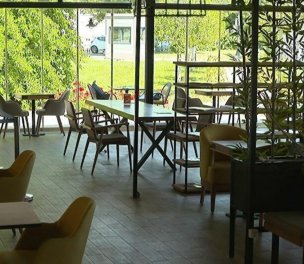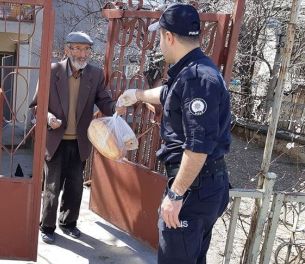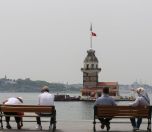Greater Economic Hardships Await Turkey, Say Economists

Click to read the article in Turkish
The Ankara Branch of the Chamber of Architects has organized a video conference entitled "Pandemic, Crisis, Future."
Moderated by Tezcan Karakuş Candan, the Ankara Branch Chair of the chamber, and Nihal Evirgen, its secretary, the conference has focused on the ways in which novel coronavirus (COVID-19) pandemic will affect the economy of Turkey as well as that of the world.
Mustafa Sönmez, Selin Sayek Böke, Oğuz Oyan and Aziz Konukman have discussed the issue briefly as follows:
'Lower classes exposed to pandemic more'
Economist, academic and writer Prof. Oğuz Oyan:
"In all countries hit by the pandemic, it has turned out that the pandemic also has a characteristic of class. In the US, all lower classes and people of color have been exposed to the disease more than all others.
"The ones who get a very meagre share from the distribution of income, those who work as unskilled laborers and the ones who have to work during this pandemic have been affected a lot. As the number of people over the age of 65 is under 10 percent in Turkey and as they have been isolated early, Turkey does not have much of a breakpoint over the age of 65.
"If the fatality rate in proportion to the infected persons can be kept at 3 percent... Say 5 percent, including the unregistered ones... It is mostly thanks to the early quarantine imposed on the ones aged 65 and over.
"Let us look at the fatalities in Turkey from the other way round. It has been seen that the majority of coronavirus deaths are between the ages of 25 and 65. Because they are the ones who work.
"Apart from the ones staying home because of closed businesses, industrial workers and all other production workers have had to go to work. They worked even on holidays, at the weekends or feasts.
'Deterioration in all incomes'
"As of June 1, we have been in a period when a potential second wave is on agenda. Because the economy is crying out loud. So are the ones who have hit the zero income level. There is a serious number of people... All incomes of the economy have been deteriorating. A swift reopening of the economy also means a swift abandonment of measures.
"In developed countries, people have received significant amounts of demand-side support. Turkey does not even talk about it. The government has said nothing about it. They unveiled an economic package worth of 260 billion. But a significant amount of this package has supported the capital.
"When we look at what support has been granted to wide segments of the society who have suffered from income losses in this period, we see that a 6-billion support has been provided to 4.5 million workers as short time working allowance. This money was not paid from the budget, but from the existing insurance system. When we add the 5.5-billion support to the poor to this, it makes 11.5 billion in total. When we consider it proportionally to 260 billion, it accounts for 4.4 percent. In other words, the government has completely turned its back on the people, it has condemned them to their fate.
'Plunder of nature has accelerated the pandemic'
Main opposition Republican People's Party (CHP) İzmir MP and economist Selin Sayek Böke:
"Turkey was in a severe social crisis even before the pandemic. It was apparent that there were 7 million unemployed before the pandemic. The chains of production have broken with the pandemic.
"For countries like Turkey, which has an economic structure heavily dependent on import, the effects of a crisis based in China have been felt very clearly. Secondly, we have been faced with a factor that slows down the production. The harsh impact on the side of production and consumption will manifest itself as severe unemployment.
"We can be hopeful, but we need to be equally realistic. If the system is left to its own fate, it will be more pressuring and authoritarian.
"It is quite sharp in Turkey, but it can be observed in the whole world. If we bring a different politics into being, the economy can recover, too. The solution for the problems in economy now lies in a politics beyond economic prescriptions."
'A society has a budget, not governments'
Economist and writer Aziz Konukman:
"In periods of outbreak, not governments, but the society is supposed to have a budget. A legislative proposal foreseeing a change in the 2020 Budget of the Presidency needs to be drafted. The last sentence of the Article 19 of the Law no. 5018 stipulates that.
"If there are any extraordinary situations, you are supposed to allocate an additional budget. This budget needs to prioritize laborers and wide segments of society.
"A wealth tax can be introduced to finance this. If the balance of class does not allow it, then a short-term advance payment.
"The Central Bank can make a short-term advance payment. It will be paid after one year or it might not be paid as long as the outbreak continues.
"It might account for 15 percent of the general budget. When the additional budget comes, the general budget will also grow. Payments can be made per family with this money."
'Health problem has turned into an economic crisis'
Economist and writer Mustafa Sönmez:
"The wisdom of corona cannot be figured out yet. It is not known what other surprises it will bring along or what else it will cause with second waves. The economic dissolution caused by the first wave does not seem likely to be eliminated soon. People do not change the consumption patterns that they have acquired during the pandemic, they try the new ones.
"This process is characterized by two uncertainties:There is still a threat of second, third waves of pandemic. Sharp collapses or fluctuations have not yet been eliminated. Demands still have no returns and global chains that dissolved around the world as a result have not yet recovered.
"To top them all, there is a huge public finance burden on all countries. The interventions relating to the pandemic have caused an increase in the already huge public debt burden. If a second wave hits, I am not sure if they have the same gunpowder in store.
"People will not keep on consuming as they used to do because they have suffered quite an income loss, they will be more selective. Certain sectors like tourism and civil aviation will manage to keep their heads above the water. If the states cannot overcome this, I think that supra-state institutions will introduce some arrangements.
"Greater hardships than the ones faced today are awaiting Turkey. They are perhaps thinking of buying time and mustering up energy before entering that tunnel. They are paving the way for this. They might be making efforts to set the opposition against each other and catch them on the wrong foot in the event of a possible snap election.
"Lower classes have fallen victims to the pandemic around the whole world. Pandemic has turned into a matter of class. Objections to this will be raised in various disguises. The urgent problem of Turkey is not economic measures, but political change. We need to pass from this senile regime to an environment with a powerful and participatory parliament, an independent-impartial judiciary and a free media." (RT/SD)










scd.jpg)